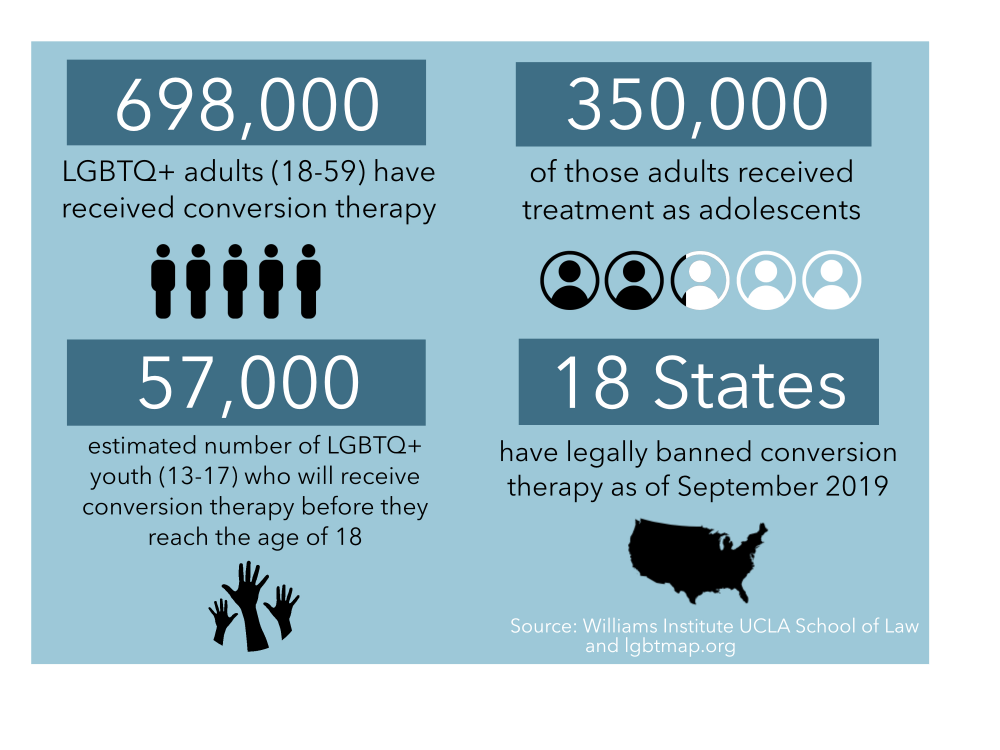This year, The Trevor Project conducted a “National Survey on LGBTQ Youth Mental Health.” Of the 34,000 kids surveyed, two out of three report “someone tried to convince them to change their sexual orientation or gender identity.” That being said, any attempt to repress or change someone’s sexual or gender identity is emotionally traumatizing and overwhelmingly ineffective.
One of the most harmful ways people try to do this is through conversion therapy. Also known as “reparative therapy,” conversion therapy is the act of using a variety of “shaming, emotionally traumatic or physically painful stimuli to make their victims associate those stimuli with their LGBTQ identities.” This “treatment,” while discredited by the American Psychiatric Association, is still operational in 32 states, and the other 18 states have banned the practice.
One of the largest conversion therapy ministries is in our own backyard in upstate South Carolina. Hope for Wholeness, a network of Christians looking to give people “freedom from homosexuality through Jesus Christ,” said they “never use coercion, shaming, nudity, touch therapies with any individual,” according to a press release.
However, even with their disclaimer, their process of giving people the “freedom in Christ we've experienced from homosexuality, transgenderism, and other forms of brokenness,” goes extremely against it. Saying they won’t shame you, but instead tell you your identity is fundamentally incorrect, is hypocritical at best. They are tearing down people’s identities because at Hope for Wholeness, participating in homosexual acts is “destructive, as it distorts God’s intent for the individual and is thus sinful."
They push a harmful and incorrect narrative that people are broken, lost and unfulfilled because they are not straight or cisgender.
Recently, founder and former director of Hope for Wholeness, McKrae Game, has come out as gay. Game himself is a victim of conversion therapy, and he is now dealing with the mental challenge that comes with harming “generations of people” in his own community.
In 2007, Hope for Wholeness administered 528 counseling sessions and at least 60 group meetings. The amount of damage done in those is unmeasurable. Conversion therapy, or even the attempt to change someone’s sexual or gender identity, is damaging and traumatizing to people’s mental health.
This year alone reports 42% of LGBTQ+ youth who attempted suicide were victims of conversion therapy, according to the Trevor Project's survey.
The fact that we live in a society that makes people so afraid to be LGBTQ+, or have someone in their life that is LGBTQ+, to the point of feeling compelled to get rid of it, proves there is a problem in how we treat and view sexual and gender identities. No one’s involvement in homosexuality is destructive, and it is not a disorder to be treated.
Conversion therapy does not fix people, because they are not broken.

